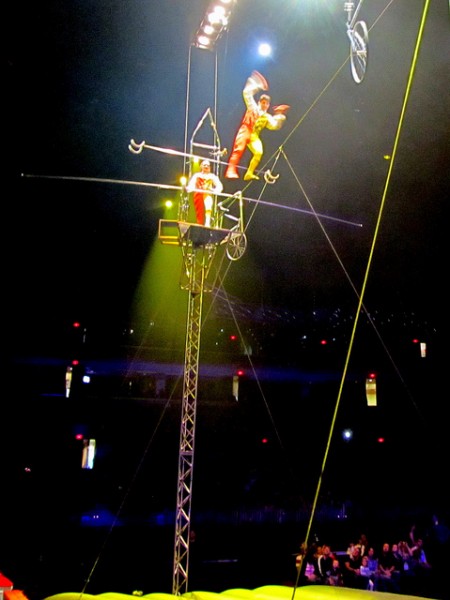 A cat says ________.
A cat says ________.A dog says________.
A skunk says______. (We don't know!) Watch this video to hear a skunk, a ground hog, a bison and more.
Withholding information
When a reader first opens your novel or story and reads the first line, the first paragraph, have you welcomed the reader and tried to put them at ease? It is imperative to invite the reader into a story in a way that puts them at ease. This means clarity must rule. The reader must never question where the story is taking place, or what—exactly—is happening in this scene. You do not have to spill all the backstory at this point—that doesn’t work. But the reader should know when, where and who and a hint of why.
Setting. The setting should be clear and specific, with sensory details appropriately sprinkled throughout the opening scene. This includes information on the geographic location, time frame (e.g. 6th century BC or 2017A.D), and something about the emotional territory.
Character. In the opening pages, the reader should meet a character that intrigues. Please, don’t name five characters on page one and expect the reader to stay oriented. Instead, give each important character a grand entrance. The inner life of the main character should start to come alive, as well. What does s/he fear, love, long for?
Cautions: The worse drafts hide information, wrongly believing that just giving a hint here or there is the best strategy. Instead, the reader becomes confused and closes the book, never to open it again. The great sff writer Orson Scott Card wisely said, “The only thing to withhold is what happens next.” Within the context of a scene, this is exactly right. The reader should understand exactly what is going on—and be so enthralled that s/he turns the page to find out “what happens next.”
Don’t use this as an excuse to include backstory, though! Backstory comes ONLY at the point at which it will create an emotional crisis in a reader. Instead, when the reader is deep within a scene, they should only care about what happens next.
Voice is too formal
 In the search for a great voice, some writers fall back on their English class and write too formally. Great fiction is informal writing. This means you can use slang, jargon, curse words (when appropriate), incomplete sentences, sentence fragments. You can, and should, interrupt someone when they are speaking. Characters can be rude. A great novel is not a tea party! Stop being so polite, so formal.
In the search for a great voice, some writers fall back on their English class and write too formally. Great fiction is informal writing. This means you can use slang, jargon, curse words (when appropriate), incomplete sentences, sentence fragments. You can, and should, interrupt someone when they are speaking. Characters can be rude. A great novel is not a tea party! Stop being so polite, so formal.
Try making up rules for yourself–play with the formality of your novel; keep what works and discard the rest. Don’t like my rules? Make up your own. But play!
- For every ten sentences, you must use a sentence fragment.
- You must use one slang/jargon word per page.
- You will write one section of dialogue (about 10 exchanges) and every bit of dialogue is incomplete sentences.
- In every chapter, someone must be rude.
Boring
Yawn. What happened in this chapter?
Nothing.
Then, why is the reader turning pages?
They aren’t!
A good exercise is to go through each chapter and write one sentence that summarizes what happens. Something important must develop or change in some way in every single chapter. Novelists do not have the luxury to stop and give us back story or tell every single detail of the setting. You must pick and choose from among the myriad of details, bits of dialogue, actions, thoughts and arrange them in an exciting, fascinating, intriguing order.
Stoic Character
For every action, your main character should have an emotional reaction. Why else is the reader following this character around? OK. Not every single action. But it’s a good exercise to try: underline the actions, and circle the main character’s emotional reaction to what just happened. How do they correlate? Do we have 100 actions and only one emotional reaction? Where ever you are on the continuum from no emotional reaction to 100% emotional reactions, evaluate it in terms of your character, your novel. Is the reader getting enough of your MC’s inner life to keep turning the pages? From my experience as a first reader, most novelists err on the side of not enough emotion. If this is hard for you, push yourself toward too much emotion and you may wind up about right.
Balance
Writing a novel is a continual decision-making process. For each detail you might include, there are dozens of great ways to put that into words. We go from words to sentences to paragraphs—and each word selection carries connotations and denotations. It’s complex! The variety of ways to tell a story are amazing. What scenes do you include/exclude, and why? What character is the main character? The point of view character?
Throughout the process of writing a novel, it’s a balancing act all the way. We walk a tightrope upon which we build a story. One misstep and the reader falls off.
This is one of the main reasons why first pages go wrong. 90% of a story may be working, until a sentence here, a word there, a questionable emotion in the midst of the scene—and the reader puts the book down. Fine tuning the novel is crucial. Here is where first readers can really help, by marking the places that are “off.” Even if they can’t articulate WHY this section is OFF, they know it when they read it. You don’t want an English teacher marking up the story with red marks. You want a sensitive reader saying, nope, this doesn’t fit. Don’t know why, just know it doesn’t fit.
It’s a matter of balance: every word must belong. Nothing must be out of place. The reader must keep turning pages with no interruptions in the flow.



 From Betsy Devany:
From Betsy Devany:  0 Comments on Free Fall Friday as of 1/1/1900
0 Comments on Free Fall Friday as of 1/1/1900
 Before the Fall Writer’s Retreat I assign a writing exercise for writer’s to do before attending. The entries get submitted back to me before we meet in October. Then I send them out anonymously to everyone attending and we rank the entries in order of the best. The top five are given to the two editors at the retreat to pick first, second and third place winners. Prizes are given out.
Before the Fall Writer’s Retreat I assign a writing exercise for writer’s to do before attending. The entries get submitted back to me before we meet in October. Then I send them out anonymously to everyone attending and we rank the entries in order of the best. The top five are given to the two editors at the retreat to pick first, second and third place winners. Prizes are given out.

Thanks for sharing what you learned. You are awesome.
Great tips for that first page! So true that one must capture the reader's interest. Thanks for the tips.
I must rewrite my first page (or first paragraph, or first SENTENCE) about a gazillion times. It's like making caramel icing--you can't explain it exactly, but you know when it feels right. ;-)
Hi Cathy,
Great advice, which I need to hear again and again.
Donna